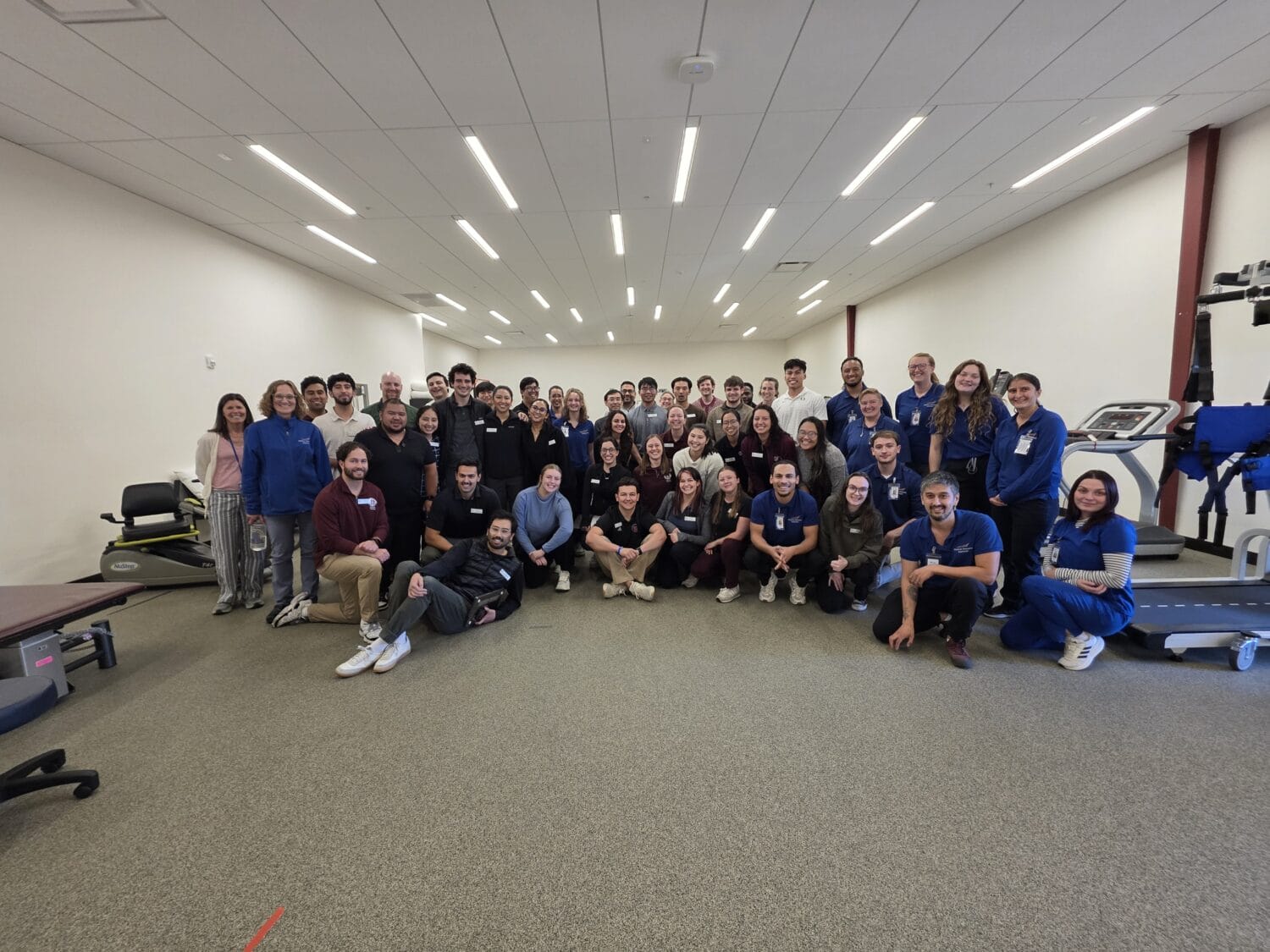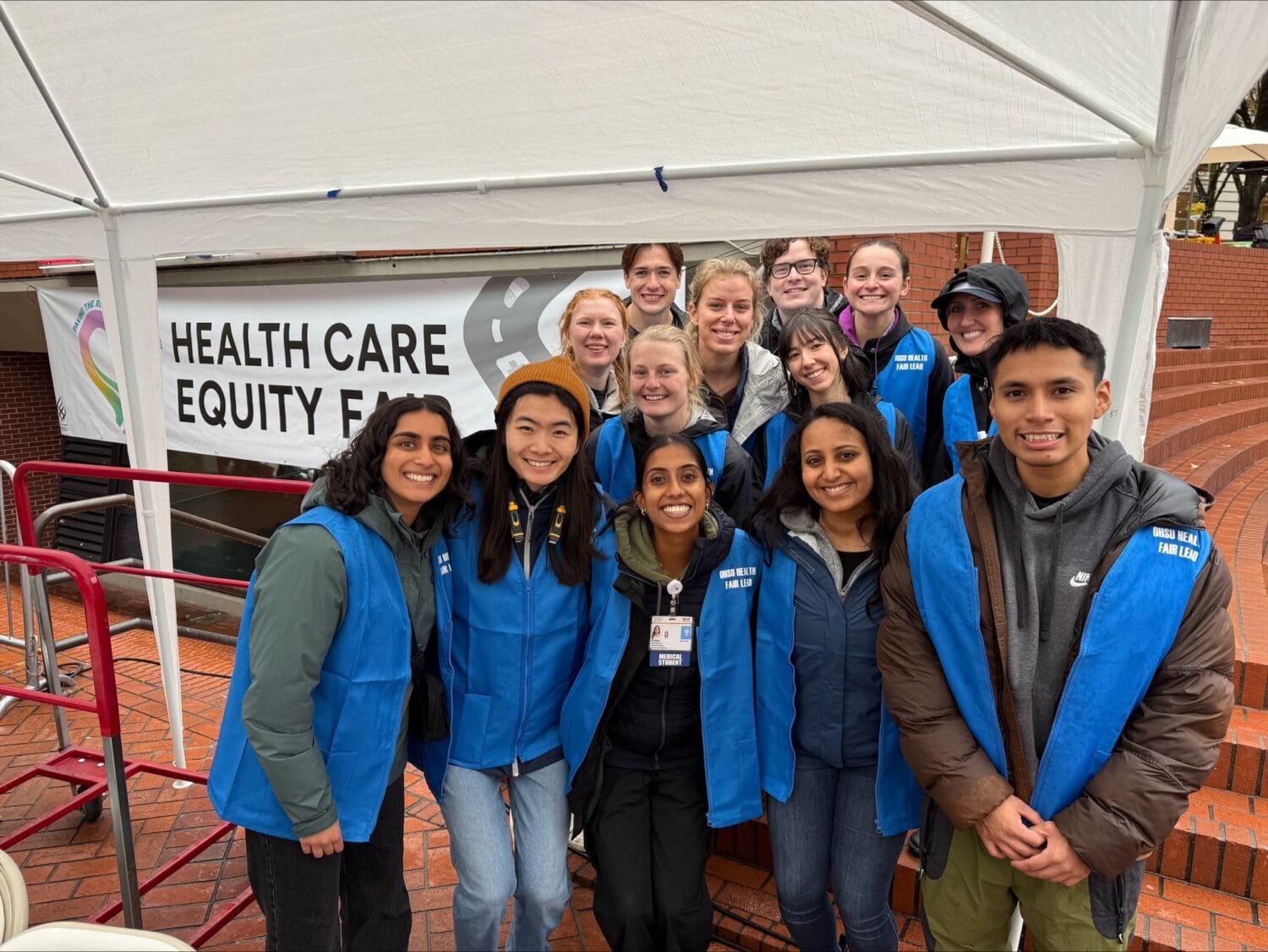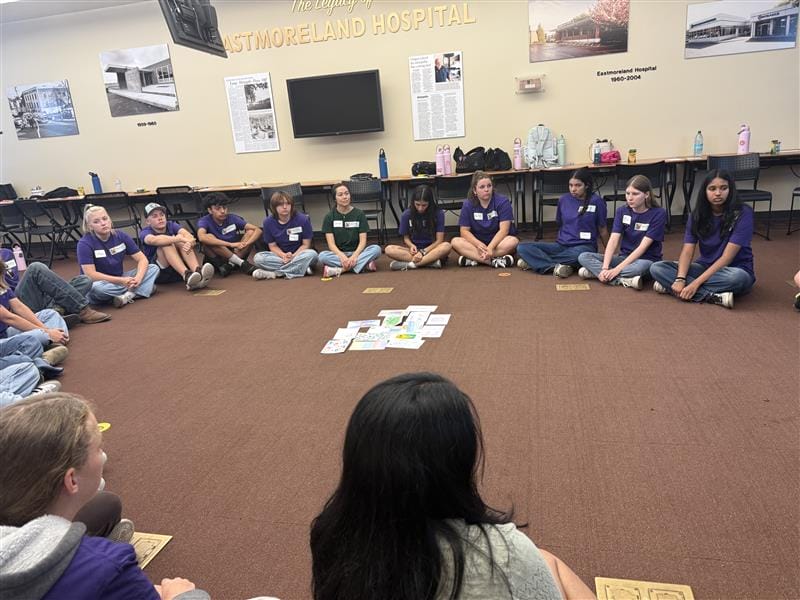Pharmacy Abroad
Pawalee Niamtaworn, an exchange student from Thailand, spent four weeks in Southern California learning about pharmacy practices in the U.S. Her visit also provided valuable cultural lessons to WesternU students and her host family.
Niamtaworn, a fifth-year pharmacy student from the Faculty of Pharmaceutical Sciences, Khon Kaen University in Thailand, completed a one-month rotation at Harbor-UCLA Medical Center and stayed with the family of Rick Sylvies, PharmD, Assistant Professor of Pharmacy Practice and Administration for the Western University of Health Sciences College of Pharmacy .
Niamtaworn, who goes by the nickname Mai, thanked the Sylvies family for their hospitality and Assistant Professor Sheryl Chow, PharmD, for taking her on rotation. She also thanked Lena Yang, PharmD ’09, who helped her during the rotation and gave her a ride home every day. The gratitude is shared by her host family.
“We’ve enjoyed Mai’s visit immensely – we’re going to miss her when she leaves,” Sylvies said. “She has left a positive and lasting impression on me as well as my family.”
Niamtaworn said her visit has taught her that there are similarities in pharmacy practice between the two countries.
“We do have a consult room for patients,” she said. “We use mostly American guidelines.”
Thai pharmacists use the same treatment guidelines as the U.S. and the pharmacist’s role in the health care system is very much the same as it is in the U.S., Sylvies said.
“Even though Thai and American cultures are vastly different, our collective desire to improve the lives of others through safe and effective medication use is a goal we all share,” he said.
But there are also some differences. In Thailand, people might ask why a pharmacist needs to go on rounds with a physician, Niamtaworn said.
“The profession is more recognized here than in Thailand,” she said. “There are more opportunities here.”
At Harbor-UCLA, she went on rounds with a coronary care unit and learned about cardiac diseases, which provided another example of the differences between the two countries.
“Here, if you have a heart attack they put a stent in right away,” she said. “In Thailand, you could wait a month for a stent.”
Niamtaworn provided insight into the health care system in Thailand at special presentations to WesternU students and faculty on Jan. 23. About three-fourths of the people in Thailand have universal health care coverage, she said. Others are covered by social security or voluntary health insurance, and civil servants receive better options than those with the basic coverage. Private hospitals are available, but they are much more expensive, she said.
Students decide on their career path in the 10th grade, specializing in science/math, math, languages or social studies. Students interested in medical or pharmacy school enter the science/math program.
Niamtaworn is among the last group of students completing a five-year Bachelor of Science in pharmacy degree. Pharmacy schools throughout Thailand are transitioning to a six-year PharmD degree program.
Niamtaworn spent a year in Minnesota as a high school exchange student and may return here to earn a PharmD degree. Her time abroad will help her career, she said.
“Most of our books and our guidelines are in English,” she said. “You’re one step ahead of others if you speak English.”
Colleges of pharmacy in Thailand are starting to offer more post-graduate training in the form of pharmacy residencies and fellowships, Sylvies said.
Exchange programs provide a rich, culturally diverse environment for WesternU students that will help them broaden their understanding of the world, Sylvies said.
“Americans tend to be a bit isolated by our culture and geography,” he said. “Seeing the similarities between ourselves and distant cultures can help us and our students understand that health care workers, in general, and pharmacists in particular, share the same professional goals all over the world.”



